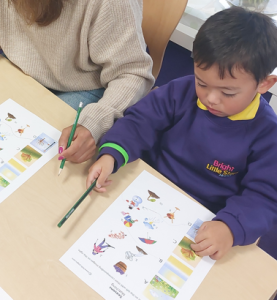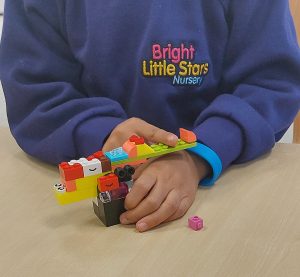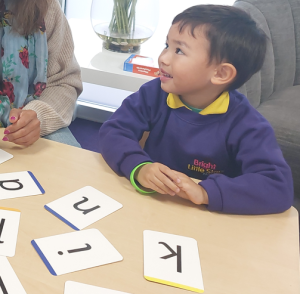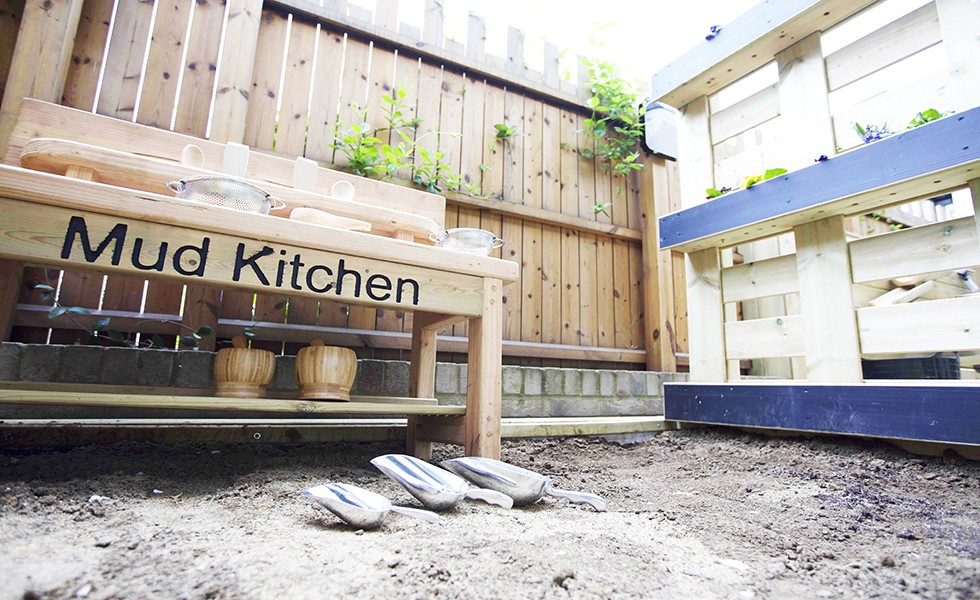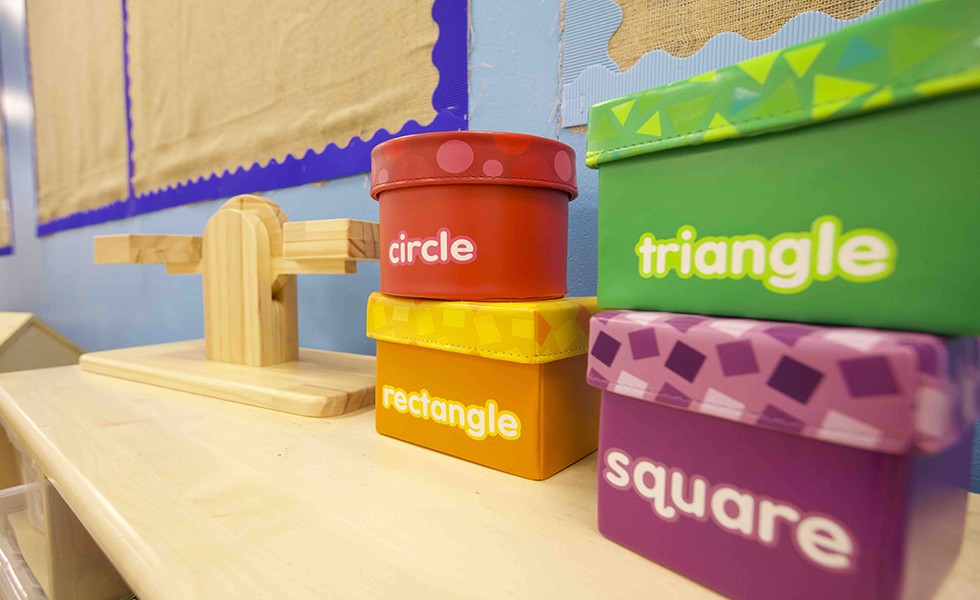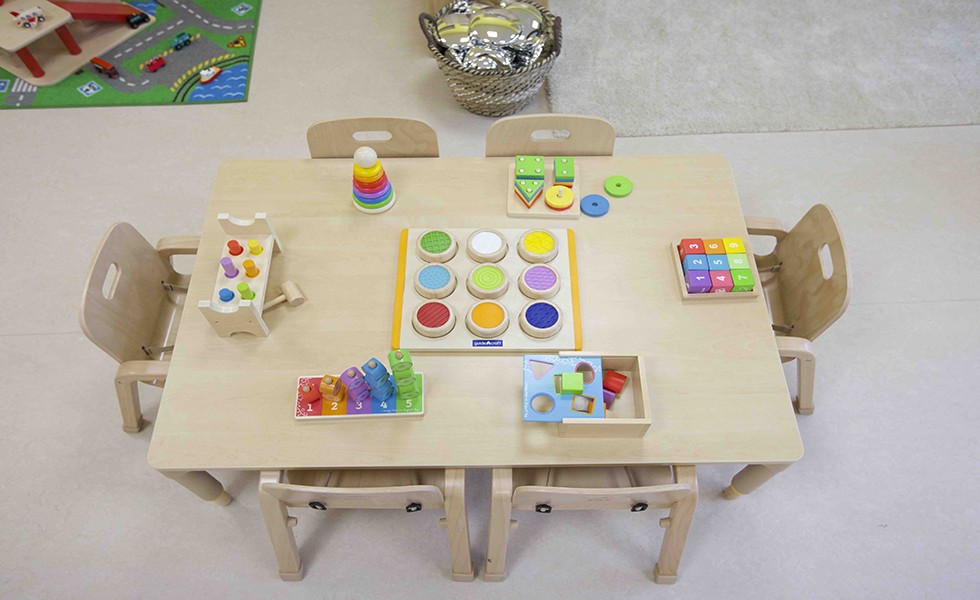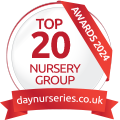-
At Bright Little Stars, our bespoke learning programme nurtures every child’s curiosity and confidence with joyful challenge and a Growth Mindset (click here to read more). We build strong foundations through the Prime Areas and extend thinking with Early Mathematics and Early Literacy. Children explore First Steps in STEAM & AI (click here to read more), grow through Mind, Body & Expression and thrive in Outdoor Learning. They progress through our School Ready Programme, Communication & Languages, and Arts & Imagination. Above we celebrate curiosity and joy to bring play and teaching together.
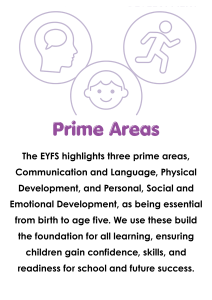
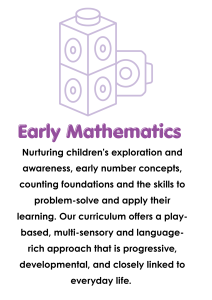
Benefits
- Builds problem solving skills
- Supports cognitive development
- Lays strong foundations for numeracy
- Encourages confidence & independence
- Connects learning to real life
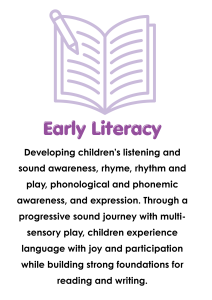
Benefits
- Builds strong communication skills
- Develops phonological awareness
- Supports early reading & writing
- Boosts confidence
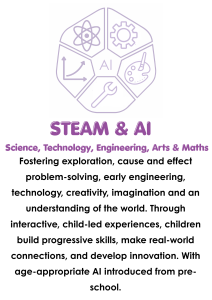
Benefits
- Encourages curiosity & critical thinking
- Builds creativity & self-expression
- Provides early STEAM foundations
- Connects children to the world around them
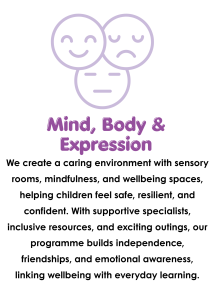
Benefits
- Safe & secure foundations
- Emotional awareness & expression
- Provides early STEAM foundations
- Connects children to the world around them
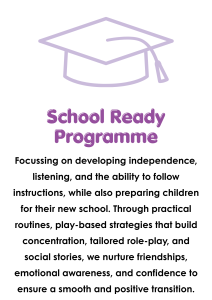
Benefits
- Develops independence
- Refines listening skills
- Builds ability to follow instructions
- Prepares for transition
- Nurtures friendships
- Supports emotional awareness
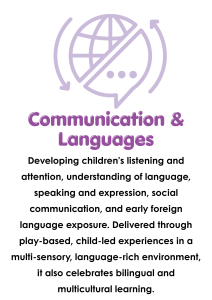
Benefits
- Stronger relationships
- Confidence & self-esteem
- Foundation for Literacy
- Cultural awareness
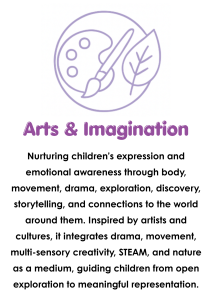
Benefits
- Creative expression & confidence
- Sensory & physical development
- Emotional awareness & wellbeing
- Observation & connection to the world
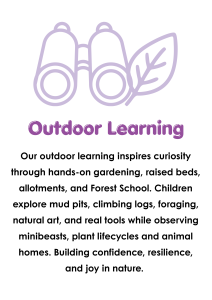
Benefits
- Deepened curiosity & engagement
- Enhanced physical development
- Stronger emotional resilience & confidence
- Early environmental awareness & respect for nature
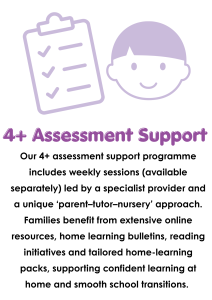
Benefits
- Stronger school readiness & confidence
- Aligned home-nursery support
- Specialist insight
- Smoother transition to school
-
We offer a range of inclusive clubs, led by external specialists. We also arrange visits to local museums, libraries and parks. Club activities are included in nursery fees to ensure equal opportunities for all children. Offerings may vary by nursery, be weather-dependent, or rotate throughout the year for a well-rounded experience.
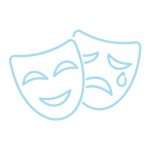
Drama- Building confidence, strengthening communication and early literacy, along with encouraging solo speaking. Playful storytelling sessions where babies and children join in with actions, dance and early drama, bringing stories to life in a fun, creative way.
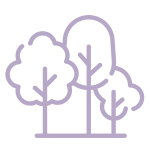
Forest School- Rain-or-shine, hands-on outdoor learning that builds risk awareness, decision-making and child-led exploration. Sensory walks, foraging, woodwork and safe tree climbing, deepening children’s understanding of their world.
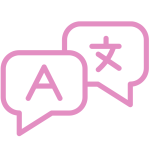
Languages- Fun, interactive musical and language sessions for babies to pre-schoolers. Familiar songs and rhymes, with sensory props, puppets, bubbles, maracas and ribbons, bring the language to life.

Mindfulness/Yoga- Yoga and mindfulness sessions, blending movement and storytelling. Children explore yoga-inspired adventures while building emotional growth, focus, self-regulation, and confidence.
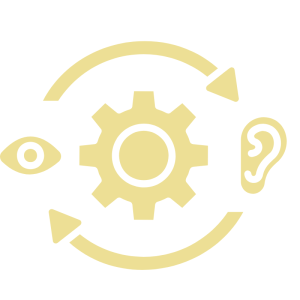
Sensory Sessions- A four-week rotation of themed activities. Singing, sign language, sensory lights, bubble shows, floating fabrics, balloons, role play, and natural treasures to engage and stimulate little ones.
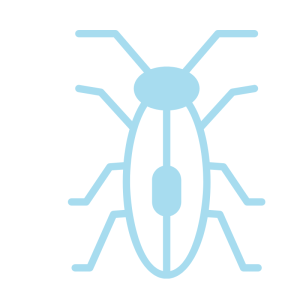
Wild Fangs- Interactive, exotic-animal encounters with engaging talks. They emphasise ‘education through engagement’. Hands-on learning that taps prior knowledge, sparks excitement and introduces new information.
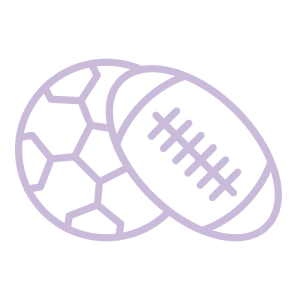
Sport/Gymnastics- Varied sports, including gymnastics, tennis, basketball, dance, and athletics. Building strength, movement skills, and confidence using different equipment, keeping every session fun and development focused.
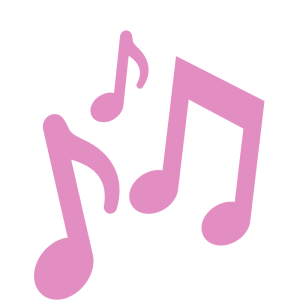
Music/Movement/Dance- Interactive music and movement classes with themed adventures, using colours, animals and the circus. Using nursery rhymes, action songs and props, to foster learning through dance and play.
-
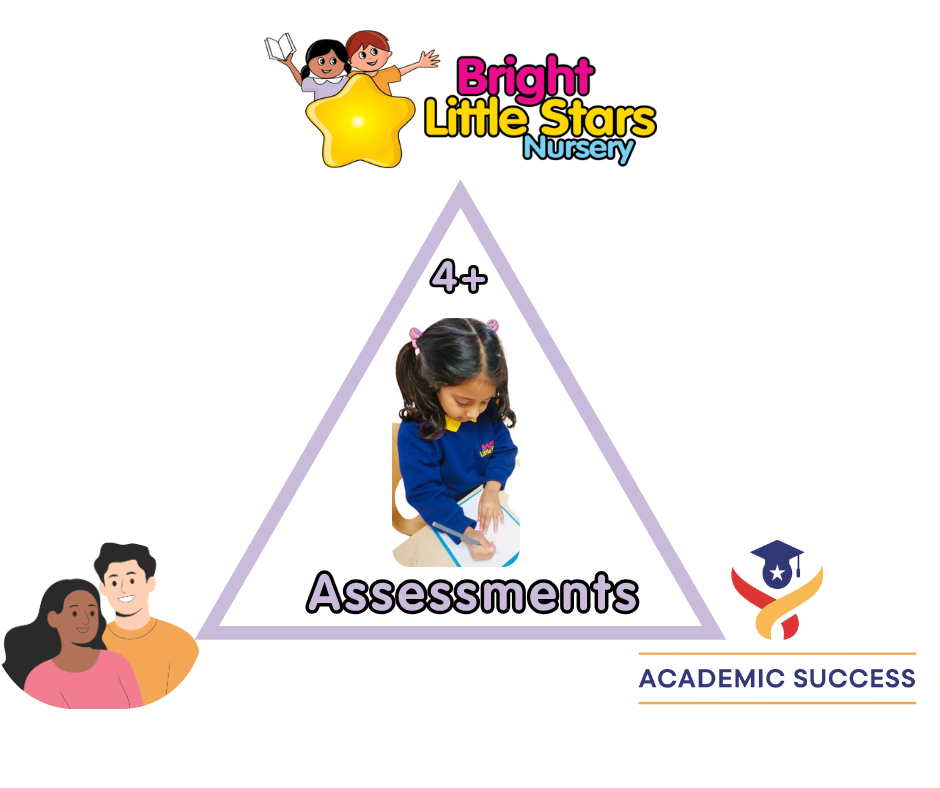 In partnership with Academic Success, Bright Little Stars offers an optional comprehensive 4+ Assessment Support Programme, built around a unique parent–tutor–nursery triangle.
In partnership with Academic Success, Bright Little Stars offers an optional comprehensive 4+ Assessment Support Programme, built around a unique parent–tutor–nursery triangle.What are the sessions?
Expert led structured sessions, designed to mirror the style, pace and challenge of 4+ assessments used by selective independent schools.Who are they for?
Children who are preparing to attend 4+ assessments and would benefit from advanced preparation.What do they focus on?
Strong listening, attention and concentration
Early phonics and number confidence
Ability to follow multi-step instructions
Independent thinking and problem solving
Resilience when faced with unfamiliar or challenging tasks
Fine motor control and accuracy (pencil work, pattern work, cutting, matching)How are they taught?
Sessions are led by our expert tutor from Academic Success. They are goal-focused with clear expectations, a brisk pace and high levels of engagement. Children experience mock 4+ style activities that closely reflect the expectations of highly selective independent schools, ensuring they are appropriately challenged and thoroughly preparedWhat are the group sizes?
Small groups (to a maximum of 6), that allow close observation and individual stretch.When and where do they take place?
Sessions take place at our nurseries during the nursery day, in a dedicated room.Progress and Feedback
Built around a unique parent-tutor-nursery triangle, parents receive weekly written feedback, including individualised highlights and next steps.
Parents have access to our dedicated Assessment Support information section in the Parent Area of our website, which offers additional guidance and resources. We also provide ‘Parent Notes’ for the independent schools we visit, outlining key admissions information, assessment formats and school highlights.
In addition, we are proud to host events where parents can meet representatives from schools such as Habs and North London Collegiate, helping to ensure smooth and well-informed transition within our family-like community. We have developed particularly strong relationships with the following schools: Aldenham Prep, Edge Grove, Grimsdell, Habs Boys, Habs Girls, Holland House, Lochinver, Manor Lodge, Merchant Taylor’s Prep and North London Collegiate.Together, we nurture confident children who are fully prepared to shine in their 4+ assessments.
